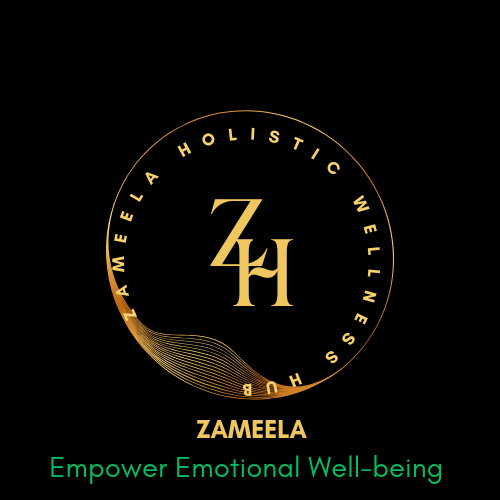Exploring the Connection Between Sleep Disruption and Emotional Distress: Unlock the benefits of 8 + hours of restful Sleep
Sleep Disruption & Emotions: Why You Need 8+ Hours of Restful Sleep
Exploring the Connection Between Sleep Disruption and Emotional Distress:
Sleep Hygiene Tips to Support Emotional Balance and Mental Clarity: Power Up Your Days with 8 Hours of Deep Sleep
Ever feel like you’re running on fumes? Like your brain is stuck in fog? A good night’s sleep might be the missing piece. Sleep isn’t just about feeling rested; it’s crucial for our mental health too. When we sleep well, we feel more emotionally balanced and mentally sharp. Here, we’ll explore some simple tips to improve your sleep hygiene, paving the way for deeper sleep and brighter days.
Sleep: Recharging Your Brain for Emotional Balance and Clarity
Just like your phone needs to recharge each night, so does your brain. Sleep isn’t a luxury; it’s essential for our mental well-being. When we’re sleep deprived, it’s like our brain is running on low battery. We become irritable, struggle to focus, and emotions can feel all over the place. On the flip side, good sleep helps us manage stress, think clearly, and feel more positive throughout the day.
The Sleep-Mind Connection: Powering Up Your Emotions and Thinking
Sleep isn’t just about physical rest. During sleep, our brains are busy processing information, solidifying memories, and regulating emotions. Think of it like defragging a computer hard drive. When sleep is disrupted, this delicate process gets thrown off balance. We become more sensitive to stress, struggle to regulate our emotions, and find it harder to focus and think clearly. Conversely, getting enough quality sleep strengthens our emotional resilience, improves our ability to manage stress, and keeps our minds sharp and clear.
Unlock the Power of Sleep: Simple Tips for a Better Night’s Rest
Feeling the effects of sleep deprivation? You’re not alone. But the good news is, you can take control and get back on track to a good night’s sleep. In the next section, we’ll explore some practical sleep hygiene tips that can make a big difference. From creating a relaxing bedtime routine to optimizing your sleep environment, these tips will help you unlock the power of sleep and wake up feeling refreshed, emotionally balanced, and mentally sharp.
Key Takeaways
- Sleep is essential for mental well-being: Just like needing to recharge a phone, our brains require sleep to function optimally. When sleep deprived, we experience emotional imbalances and struggle with focus and clarity.
- Good sleep promotes emotional resilience: Deep sleep strengthens our ability to manage stress and regulate emotions. We become less reactive and more capable of handling daily challenges.
- Simple sleep hygiene tips can improve sleep quality: By implementing practices like a relaxing bedtime routine and optimizing your sleep environment, you can unlock the power of sleep and wake up feeling refreshed, emotionally balanced, and mentally sharp.
Exploring the Connection Between Sleep Disruption and Emotional Distress:
Understanding the Sleep-Emotion Connection
Imagine your brain is like a complex switchboard, constantly managing a flow of information and emotions. Sleep acts like a maintenance crew, coming in at night to sort through everything and make sure things are running smoothly.
Here’s how sleep helps regulate our moods:
- Recharging the emotional battery: During sleep, our brains process emotional experiences from the day. Just like clearing out clutter, this helps us manage stress and negative emotions.
- Balancing brain chemicals: Sleep plays a role in regulating neurotransmitters, the brain’s chemical messengers. When sleep deprived, these chemicals can become imbalanced, leading to mood swings and irritability.
- Sharpening our emotional intelligence: Sleep is essential for consolidating memories and learning. This includes emotional learning, which helps us understand and respond to emotions in ourselves and others.
Think of it this way: a good night’s sleep gives your brain the tools it needs to manage your emotions effectively, leading to a calmer and more balanced you.
Exploring the Connection Between Sleep Disruption and Emotional Distress:
Understanding the Sleep-Emotion Connection: The Impact of Sleep Deprivation on Emotional Stability
When we don’t get enough sleep, it’s like running on an empty tank of gas. Not only do we feel physically drained, but our emotional regulation takes a hit too. Here’s how sleep deprivation can negatively impact emotional stability:
- Heightened emotional reactivity: Imagine your emotions are like a hair-trigger. When sleep deprived, even minor stressors can feel overwhelming, leading to outbursts of anger, frustration, or sadness.
- Difficulty managing stress: Sleep is crucial for processing stress hormones. When sleep deprived, these hormones stay elevated, making it harder to manage everyday challenges and leaving us feeling constantly on edge.
- Increased risk of anxiety and depression: Chronic sleep problems are linked to a higher risk of developing anxiety and depression. The emotional dysregulation caused by sleep deprivation can worsen these conditions and make it harder to cope.
- Reduced emotional intelligence: Remember, sleep helps us learn and process emotional experiences. When sleep deprived, we struggle to understand our own emotions and those of others, leading to miscommunication and conflict.
Think of it like this: without enough sleep, our brain’s ability to manage emotions weakens. We become more reactive, less resilient to stress, and struggle to maintain emotional balance.
Exploring the Connection Between Sleep Disruption and Emotional Distress:

The Role of Sleep in Cognitive Function: Memory Maestro
Ever wonder why cramming for a test the night before rarely works well? Sleep plays a critical role in memory consolidation, which is the process of transforming short-term memories into long-term ones. Here’s how sleep helps solidify our memories:
- Replays and strengthens connections: During sleep, especially deep sleep stages, the brain replays recent experiences. This strengthens the neural connections associated with those memories, making them more likely to be stored for the long haul.
- Decluttering the mind: Sleep also helps with memory housekeeping. While we slumber, the brain consolidates important memories and weakens or prunes less important ones. This frees up space for new learning and keeps our memory systems from becoming overloaded.
- Boosting learning and creativity: Good sleep isn’t just about remembering facts; it enhances our ability to learn new skills and make connections between ideas. When well-rested, our brains are more receptive to new information and can process it in a more creative way.
So, next time you have something important to learn or remember, prioritize a good night’s sleep. It’s the ultimate memory booster!
The Role of Sleep in Cognitive Function: Sharper Thinking, Better Decisions
Sleep isn’t just about storing memories; it’s like giving your brain a mental workout. When well-rested, we experience a range of cognitive benefits that translate into sharper problem-solving and better decision-making. Here’s how sleep enhances our thinking abilities:
- Improved focus and attention: A sleep-deprived brain struggles to concentrate. Getting enough sleep strengthens our ability to focus on the task at hand, filter out distractions, and think clearly. This allows us to analyze problems from different angles and identify the most relevant information.
- Enhanced creativity and critical thinking: Sleep plays a role in creative problem-solving. During sleep, the brain makes connections between seemingly unrelated ideas, fostering innovative solutions. Additionally, good sleep improves our ability to think critically, analyze information objectively, and weigh different options before making a decision.
- Reduced impulsivity and better judgment: When sleep deprived, we tend to make impulsive decisions based on immediate emotions rather than logic. Getting enough sleep helps us regulate emotions, think things through rationally, and make sounder judgments that consider the long-term consequences.
Imagine your brain as a cluttered desk. Good sleep is like cleaning and organizing that desk. It allows you to focus on the task at hand, think creatively, and make well-considered decisions. So, the next time you have a tough problem to solve or an important decision to make, prioritize a good night’s sleep – it could be the key to a breakthrough.
Exploring the Connection Between Sleep Disruption and Emotional Distress:
8 Essential Sleep Hygiene Tips for Optimal Mental Health
Tip #1. Establish a Consistent Sleep Schedule
Just like our bodies crave routine for meals and exercise, our brains thrive on a consistent sleep schedule. This means going to bed and waking up at roughly the same time each day, even on weekends. This helps regulate your body’s natural sleep-wake cycle, also known as your circadian rhythm.
Why it matters:
- Emotional well-being: A consistent sleep schedule promotes emotional stability by keeping your hormones in balance. This can help reduce mood swings, irritability, and anxiety.
- Cognitive function: When your sleep-wake cycle is disrupted, it can impair your focus, concentration, and memory. Sticking to a regular sleep schedule keeps your brain sharp and functioning at its best.
Tips for creating a consistent sleep routine:
- Choose a bedtime and wake-up time that works for you: Ideally, aim for 7-8 hours of sleep per night.
- Stick to your schedule as much as possible: Even on weekends, try not to deviate by more than an hour.
- Create a relaxing bedtime routine: Wind down before bed with calming activities like reading, taking a bath, or light stretching. Avoid screens for at least an hour before bedtime, as the blue light they emit can disrupt sleep.
- Make your sleep environment comfortable and dark: Invest in blackout curtains, a comfortable mattress, and a cool room temperature.
- Develop a wind-down ritual: Take a warm bath, read a book, or listen to calming music before bed.
By establishing a consistent sleep schedule and bedtime routine, you’ll be setting yourself up for a good night’s sleep, which in turn will benefit your emotional well-being and cognitive function.
Exploring the Connection Between Sleep Disruption and Emotional Distress:
Tip #2. Create a Relaxing Sleep Environment: Designing Your Sleep Sanctuary
Your bedroom should be a haven for sleep and relaxation. Here’s how to optimize your sleep environment for better sleep quality, relaxation, and focus:
- Light it right: Darkness is crucial for sleep. Invest in blackout curtains or an eye mask to block out any light pollution.
- Temperature matters: Aim for a cool room temperature, ideally between 60-67 degrees Fahrenheit (15.5-19.5 degrees Celsius). A cool environment helps your body regulate its temperature naturally during sleep.
- Silence is golden (or use earplugs): Minimize noise distractions. Consider using earplugs, a white noise machine, or a fan to block out disruptive sounds.
- Make your bed comfy: Invest in a comfortable mattress and pillows that provide proper support.
- Tame the clutter: A cluttered bedroom can create a feeling of stress and mess with your sleep. Keep your bedroom tidy and free of distractions like work materials or electronics.
- Aromatherapy for relaxation: Consider using calming scents like lavender or chamomile through an essential oil diffuser.
- Screen-free zone: Banish electronics from the bedroom! The blue light emitted by screens disrupts sleep patterns. Avoid watching TV, using your phone, or working on laptops in bed.
By creating a relaxing sleep environment, you’ll signal to your body that it’s time to wind down and prepare for sleep. This will lead to better sleep quality, improved focus throughout the day, and a calmer, more relaxed state of mind.
What are some effective ways to create a relaxing bedtime routine
Creating a Relaxing Sleep Environment
- Invest in blackout curtains or an eye mask to block out light, which can disrupt sleep.
- Aim for a cool room temperature, ideally between 60-67°F (15.5-19.5°C), as this helps regulate the body’s natural temperature during sleep.
- Minimize noise distractions by using earplugs, a white noise machine, or a fan.
- Ensure your bed is comfortable with supportive pillows and soft bedding.
- Keep your bedroom tidy and free of clutter, as a cluttered environment can create stress.
- Consider using calming scents like lavender or chamomile through an essential oil diffuser.
- Establish a “screen-free zone” in the bedroom by avoiding TVs, phones, and laptops before bed, as the blue light they emit can disrupt sleep patterns.
Implementing Relaxation Techniques
- Practice mindfulness meditation to quiet the mind and reduce stress hormones that can interfere with sleep.
- Try deep breathing exercises, such as inhaling for 4 counts, holding for 7 counts, and exhaling for 8 counts, to activate the relaxation response.
- Engage in progressive muscle relaxation, where you systematically tense and relax different muscle groups to release physical tension.
- Incorporate gentle yoga or light stretching routines to ease muscle tension and promote a sense of calm.
By creating a relaxing sleep environment and incorporating relaxation techniques into your bedtime routine, you can signal to your body that it’s time to wind down and prepare for restful sleep. This can lead to improved sleep quality, better emotional regulation, and enhanced overall well-being.
Exploring the Connection Between Sleep Disruption and Emotional Distress:

Tip #3. Implement Relaxation Techniques Before Bed: De-Stress for Better Sleep
Let’s face it, our days can be filled with stressors, and a racing mind isn’t conducive to sleep. Here’s where relaxation techniques come in. By incorporating calming practices into your bedtime routine, you can signal to your body that it’s time to unwind and prepare for sleep. This not only improves sleep quality but also helps manage stress, a major contributor to emotional distress [Exploring the Connection Between Sleep Disruption and Emotional Distress].
Here are some effective relaxation techniques to try before bed:
- Meditation: Mindfulness meditation helps quiet the mind and reduce stress hormones that can interfere with sleep. Focus on your breath, letting go of intrusive thoughts. There are many guided meditation apps available to help you get started.
- Deep Breathing: Deep, slow breaths activate the relaxation response in your body, counteracting the fight-or-flight response triggered by stress. Try inhaling for a count of 4, holding for a count of 7, and exhaling slowly for a count of 8. Repeat this for several minutes.
- Progressive Muscle Relaxation: Tense and relax different muscle groups in your body, starting with your toes and working your way up. This helps release physical tension and promotes a sense of calm.
- Yoga or Gentle Stretching: Light yoga or stretching routines can ease muscle tension and prepare your body for sleep. Focus on mindful movements and deep breaths.
By incorporating relaxation techniques into your bedtime routine, you’ll be actively promoting better sleep quality, stress relief, and emotional well-being. Remember, a calm mind leads to a calm body, and a calm body leads to a restful night’s sleep.
What are the best calming activities to do before bed
- Meditation: Mindfulness meditation helps quiet the mind and reduce stress hormones that can interfere with sleep. Focus on your breath, letting go of intrusive thoughts. There are many guided meditation apps available to help you get started.
- Deep Breathing: Deep, slow breaths activate the relaxation response in your body, counteracting the fight-or-flight response triggered by stress. Try inhaling for a count of 4, holding for a count of 7, and exhaling slowly for a count of 8. Repeat this for several minutes.
- Progressive Muscle Relaxation: Tense and relax different muscle groups in your body, starting with your toes and working your way up. This helps release physical tension and promotes a sense of calm.
- Yoga or Gentle Stretching: Light yoga or stretching routines can ease muscle tension and prepare your body for sleep. Focus on mindful movements and deep breaths.
- Reading: Reading can be a calming activity that helps distract from the stresses of the day and prepares your mind for sleep. Choose a book that is not too stimulating or exciting.
- Listening to Calming Music: Soft, calming music can help create a peaceful atmosphere and promote relaxation. Choose music with a slow tempo and soothing melodies.
- Taking a Warm Bath: A warm bath can help relax your muscles and calm your mind. Add some calming essential oils like lavender or chamomile to enhance the experience.
- Practicing Gratitude: Reflecting on the things you are grateful for can help shift your focus away from stress and anxiety and promote a sense of calm. Write down three things you are grateful for each day.
- Doing a Puzzle or Playing a Calming Game: Engaging in a calming activity like a crossword puzzle, Sudoku, or a calming video game can help distract from stress and promote relaxation.
- Practicing Mindfulness: Mindfulness practices like body scan meditation, loving-kindness meditation, or mindful walking can help you focus on the present moment and let go of worries about the past or future.
Remember, the key is to find activities that help you relax and unwind before bed. Experiment with different activities to find what works best for you.
Exploring the Connection Between Sleep Disruption and Emotional Distress:
Tip #4. Manage Stress During the Day: Your Key to Better Sleep
Chronic stress can wreak havoc on your sleep, mood, and concentration, as explored in [Exploring the Connection Between Sleep Disruption and Emotional Distress]. Learning effective stress management techniques can be a game-changer for your overall well-being. Here are some strategies to incorporate throughout your day:
- Exercise Regularly: Physical activity is a powerful stress reliever. Aim for at least 30 minutes of moderate intensity exercise most days of the week. Even a brisk walk or yoga session can make a big difference.
- Mindfulness Practices: Techniques like mindfulness meditation or deep breathing can help you stay present and manage stress in the moment. Take short breaks throughout your day to practice these techniques and refocus.
- Prioritize Time Management: Feeling overwhelmed by tasks can be a major stressor. Learn to manage your time effectively by creating to-do lists, setting realistic deadlines, and delegating tasks when possible.
- Connect with Others: Social connection is essential for emotional well-being. Spend time with loved ones, engage in supportive social activities, or seek professional help if needed.
- Healthy Habits for Stress Reduction: Maintain a balanced diet, limit caffeine and alcohol intake, and get regular exposure to sunlight. These healthy habits can contribute to reduced stress levels and better overall health.
By managing stress throughout the day, you’ll be creating a calmer foundation for a good night’s sleep. This, in turn, will lead to improved mood, better focus, and a greater sense of emotional well-being.
Exploring the Connection Between Sleep Disruption and Emotional Distress:
Tip #5. Limit Sleep Disruptors Before Bed: Power Down for a Better Night’s Rest
There are certain substances and activities that can disrupt your sleep quality, mood, and focus, as explored in [Exploring the Connection Between Sleep Disruption and Emotional Distress]. Here’s why it’s important to limit these sleep disruptors before bed:
- Caffeine: While it might give you a temporary energy boost, caffeine can stay in your system for several hours, interfering with sleep later in the night. Avoid caffeinated beverages like coffee, soda, and energy drinks in the afternoon and evening.
- Alcohol: While alcohol might make you feel drowsy at first, it disrupts sleep cycles later in the night, leading to fragmented sleep and feelings of grogginess the next day. Avoid heavy drinking close to bedtime.
- Nicotine: Similar to caffeine, nicotine is a stimulant that can interfere with sleep. Avoid smoking cigarettes or using other nicotine products in the hours leading up to bed.
- Blue Light: The blue light emitted from electronic devices like phones, laptops, and TVs suppresses the production of melatonin, a hormone that regulates sleep. Avoid screen time for at least an hour before bed and consider using blue light filters or dimming settings on your devices.
Limiting these sleep disruptors allows your body to wind down naturally and prepare for sleep. This translates into better sleep quality, improved mood and focus the next day, and a stronger foundation for emotional well-being.
Exploring the Connection Between Sleep Disruption and Emotional Distress:

Tip #6. Prioritize a Healthy Diet and Hydration: Fueling Your Body for Better Sleep
Just like a car needs the right fuel to run smoothly, your body needs proper nutrition and hydration to function optimally, including getting a good night’s sleep. Here’s how a healthy diet and hydration can benefit your sleep quality, energy levels, and cognitive performance:
- Balanced Diet: Eating a balanced diet rich in fruits, vegetables, whole grains, and lean protein provides your body with the essential nutrients it needs to regulate sleep hormones and support restful sleep. Avoid sugary foods and heavy meals close to bedtime, which can disrupt sleep.
- Hydration: Dehydration can lead to fragmented sleep and daytime fatigue. Aim to drink plenty of water throughout the day and avoid dehydrating beverages like excessive coffee or alcohol before bed.
The Connection to Emotional Well-being: Remember, as discussed in [Exploring the Connection Between Sleep Disruption and Emotional Distress], poor sleep quality can negatively impact emotional regulation. By prioritizing a healthy diet and hydration, you’re not only promoting better sleep but also supporting your body’s ability to manage stress and maintain emotional balance.
Eating well and staying hydrated sets the stage for a good night’s sleep, which in turn fuels your energy levels, improves cognitive performance, and strengthens your emotional resilience.
Exploring the Connection Between Sleep Disruption and Emotional Distress:
Tip #7. Get Regular Exercise: Move Your Body for Better Sleep
Exercise isn’t just about physical fitness; it’s a powerful tool for promoting better sleep, mood, and cognitive function. Here’s how regular physical activity can benefit your overall well-being:
- Improved Sleep Quality: Exercise helps regulate sleep hormones and promotes deeper, more restful sleep. Aim for at least 30 minutes of moderate intensity exercise most days of the week. However, avoid strenuous workouts too close to bedtime, as they can be stimulating.
- Enhanced Mood: Physical activity is a natural mood booster. Exercise releases endorphins, which have mood-elevating and stress-reducing effects. This can help combat symptoms of anxiety and depression, as explored in [Exploring the Connection Between Sleep Disruption and Emotional Distress].
- Sharpened Cognitive Function: Exercise improves blood flow to the brain, which can enhance cognitive function, memory, and learning. Regular physical activity can also help with focus and concentration throughout the day.
Regular exercise is a win-win for your physical and mental health. By incorporating physical activity into your routine, you’ll be promoting better sleep quality, a more positive mood, and sharper cognitive function. This translates into a greater sense of well-being and emotional resilience.
Exploring the Connection Between Sleep Disruption and Emotional Distress:
Tip #8. Address Underlying Anxiety or Depression: Prioritizing Your Mental Health
Sometimes, despite our best efforts, sleep problems persist. This could be a sign of an underlying mental health condition like anxiety or depression, as explored in [Exploring the Connection Between Sleep Disruption and Emotional Distress]. These conditions can significantly disrupt sleep patterns and exacerbate feelings of emotional distress.
Here’s why seeking professional help is important:
- Accurate Diagnosis and Treatment: A mental health professional can accurately diagnose the underlying cause of your sleep problems and develop a personalized treatment plan. This might include therapy, medication, or a combination of both.
- Improved Sleep Quality: Effectively managing anxiety or depression can significantly improve your sleep quality. This, in turn, will lead to better emotional regulation, increased energy levels, and improved overall well-being.
- Long-Term Benefits: Addressing mental health concerns can have lasting positive effects on your sleep, mood, and overall quality of life.
Remember: You don’t have to go through this alone. There are many qualified mental health professionals available who can help you manage your sleep problems and improve your emotional well-being.
Taking care of your mental health is just as important as taking care of your physical health. By seeking professional help if needed, you’ll be investing in a better night’s sleep and a brighter future.
Exploring the Connection Between Sleep Disruption and Emotional Distress:
How does deep breathing help in reducing stress before bed
Deep breathing is an effective technique for reducing stress before bed. Here’s how it works: Deep, slow breaths activate the relaxation response in your body, counteracting the fight-or-flight response triggered by stress. This helps calm both your mind and body, preparing you for restful sleep. A simple deep breathing exercise to try:
- Inhale slowly through your nose for a count of 4
- Hold your breath for a count of 7
- Exhale slowly through your mouth for a count of 8
- Repeat this cycle several times.
Focusing on your breath takes your mind off stressful thoughts and worries. The longer exhale stimulates the vagus nerve, which signals to your brain to relax. Deep breathing also increases oxygen flow and reduces levels of cortisol, the primary stress hormone.
This physiological shift helps lower blood pressure and heart rate, releasing muscle tension. Incorporating deep breathing into your bedtime routine sends a powerful signal to your body that it’s time to wind down and prepare for sleep.
This promotes better sleep quality and emotional well-being. So, when stresses keeping you up at night, take a few minutes to practice deep breathing. It’s a simple yet effective way to activate your relaxation response and get the restful sleep your mind and body crave.

Exploring the Connection Between Sleep Disruption and Emotional Distress:
Emotional Stress and Sleep
Can’t Catch Those Zzz’s? Stress Might Be Why
Emotional stress and sleep have a tangled relationship. When you’re stressed, your mind races, making it hard to fall asleep.
- Stress whispers worries: “Did I finish that report?” “What if I fail that presentation?” These worries keep your brain active, pushing sleep away.
- The body tenses up: Stress hormones like cortisol rise, putting your body in “fight-or-flight” mode. This isn’t exactly ideal for peaceful slumber.
Lack of sleep can then worsen stress, creating a vicious cycle. By managing stress, you can improve your sleep, and better sleep can help you handle stress more calmly.
Exploring the Connection Between Sleep Disruption and Emotional Distress:
Does emotional stress affect sleep?
Tossing and Turning? Stress Could Be the Culprit
Ever lie in bed wide awake, replaying the day’s worries? You’re not alone. Emotional stress can wreak havoc on your sleep in a few ways:
- Racing thoughts: Stressful situations can trigger anxieties, making it hard to quiet your mind and drift off.
- Tense muscles: The body’s stress response tenses muscles, leaving you feeling wound up and unable to relax.
This lack of sleep can then make you feel more stressed and irritable, creating a frustrating cycle. By finding healthy ways to manage stress, you can break free from this cycle and get the restful sleep you deserve.
Exploring the Connection Between Sleep Disruption and Emotional Distress:
Is there a link between poor sleep quality and psychological distress?
Sleepless Nights, Restless Mind
It’s a two-way street: poor sleep quality and psychological distress can feed off each other.
-
Sleepless nights drain your mood: When you don’t get enough sleep, you feel tired and grumpy. This can make it harder to cope with daily challenges and contribute to feelings of anxiety or depression.
-
Stress keeps you up: Worries and anxieties can make it difficult to fall asleep or stay asleep throughout the night.
This cycle can be tough to break, but improving your sleep hygiene and managing stress can help you get back on track to feeling better overall.
Stress and Sleep Disorders
Stress Can Fuel Sleep Disorders
Feeling stressed can worsen existing sleep disorders or even trigger them. Here’s why:
- Stress disrupts sleep patterns: Whether it’s insomnia (trouble falling asleep) or frequent waking during the night, stress can throw your natural sleep cycle off balance.
- Anxiety and restlessness: Stress can make underlying sleep disorders like restless legs syndrome (RLS) or sleepwalking worse.
If you have a sleep disorder, managing stress alongside your treatment plan becomes even more important for a good night’s rest.
Exploring the Connection Between Sleep Disruption and Emotional Distress:
Stress and Sleep Function
The Stress-Sleep Tango: How They Affect Each Other
Stress and sleep are like dance partners who can either create a smooth routine or a clumsy mess. Here’s how they impact each other:
- Stress disrupts sleep stages: When stressed, you spend less time in deep sleep, the most restorative stage for your body and mind.
- Sleepless nights zap energy: Lack of sleep makes it harder to concentrate, manage emotions, and cope with stress, creating a frustrating cycle.
By managing stress and prioritizing healthy sleep habits, you can break free from this tango and experience the benefits of both.
Sleep and Stress Time
Calming the Storm: How Sleep Helps Manage Stress
Sleep isn’t just about rest; it’s essential for emotional well-being too. Here’s how sleep helps combat stress:
- Recharge for emotional resilience: During deep sleep, your brain processes emotions and strengthens emotional regulation. Feeling well-rested makes you better equipped to handle stressful situations.
- Improves mood and focus: A good night’s sleep helps regulate hormones that influence mood and focus. You’ll feel calmer and more capable of tackling challenges when you’re well-rested.
Prioritizing sleep is a powerful tool to manage stress and improve your overall mental and emotional health.
Conclusion: Prioritize Sleep for a Happier, Healthier, and More Productive Life
We’ve explored the powerful connection between sleep and well-being. Just like a car needs fuel to run smoothly, our bodies need quality sleep to function at their best. By prioritizing sleep and implementing these simple tips, you’re making a non-negotiable investment in your emotional, mental, and physical health.
Think of it this way: a good night’s sleep is like a magic reset button for your mind and body. You wake up feeling refreshed, emotionally balanced, and ready to tackle the day with focus and clarity. You’ll find yourself better equipped to manage stress, navigate challenges, and approach life with a more positive outlook.
Remember, improving your sleep hygiene is a journey, not a destination. There will be nights when you don’t get the perfect eight hours. Celebrate your progress, big and small, and be kind to yourself along the way. With a little effort and self-compassion, you’ll unlock a world of benefits – a happier, healthier, and more productive you! So, make sleep a priority, and watch your well-being soar.
Power Up Your Life with the Gift of Sleep!
Ready to unlock the power of sleep and experience a happier, healthier you?
Here’s what you can do:
- Implement these sleep hygiene tips: Start with one or two tips and gradually incorporate them into your routine.
- Share this article: Do you know someone who could benefit from a better night’s sleep? Share this article with them and spread the knowledge!
- Leave a comment below: Did you find these tips helpful? Share your experiences and questions in the comments section below. Let’s create a supportive community around healthy sleep habit!
By prioritizing sleep and working together, we can all experience the life-changing benefits of a good night’s rest. Sweet dreams!
FAQ
How long does it take to see improvements in emotional well-being by optimizing sleep?
The time it takes can vary, but many people report feeling more emotionally balanced and resilient within a few weeks of prioritizing better sleep habits. Building long-term benefits often takes several months of consistent practice.
What if I’m still struggling with insomnia despite trying these sleep hygiene tips?
If you’re still experiencing persistent sleep problems, it’s a good idea to seek professional help. A sleep specialist or therapist can assess any underlying issues, such as anxiety or depression, and develop a personalized treatment plan.
How can I involve my family in my sleep optimization journey?
Getting your loved ones on board can make the process more enjoyable and sustainable. Have an open conversation about your goals and enlist their support, such as keeping the bedroom environment sleep-friendly or engaging in relaxing activities together before bed.
What if I experience setbacks or have a few bad nights of sleep?
Occasional setbacks are normal. The key is to learn from these experiences and get back on track. Reflect on what might have contributed to the poor sleep and adjust your strategies accordingly. Most importantly, practice self-compassion and celebrate your progress, even if it’s small.
Source Links
- https://www.ncbi.nlm.nih.gov/pmc/articles/PMC6126303/ – The link between sleep quality and emotional regulation
- https://www.sleepfoundation.org/sleep-hygiene – Tips for improving sleep quality and creating a relaxing sleep environment
- https://adaa.org/tips – Strategies for managing stress and anxiety
- https://www.health.harvard.edu/blog/blue-light-has-a-dark-side-2018052313953 – The impact of blue light on sleep quality
- https://www.sleepfoundation.org/circadian-rhythm – The importance of consistent sleep schedules for emotional well-being
- https://adaa.org/finding-help – When to seek professional help for sleep problems and mental health concerns


Temp Mail For the reason that the admin of this site is working, no uncertainty very quickly it will be renowned, due to its quality contents.